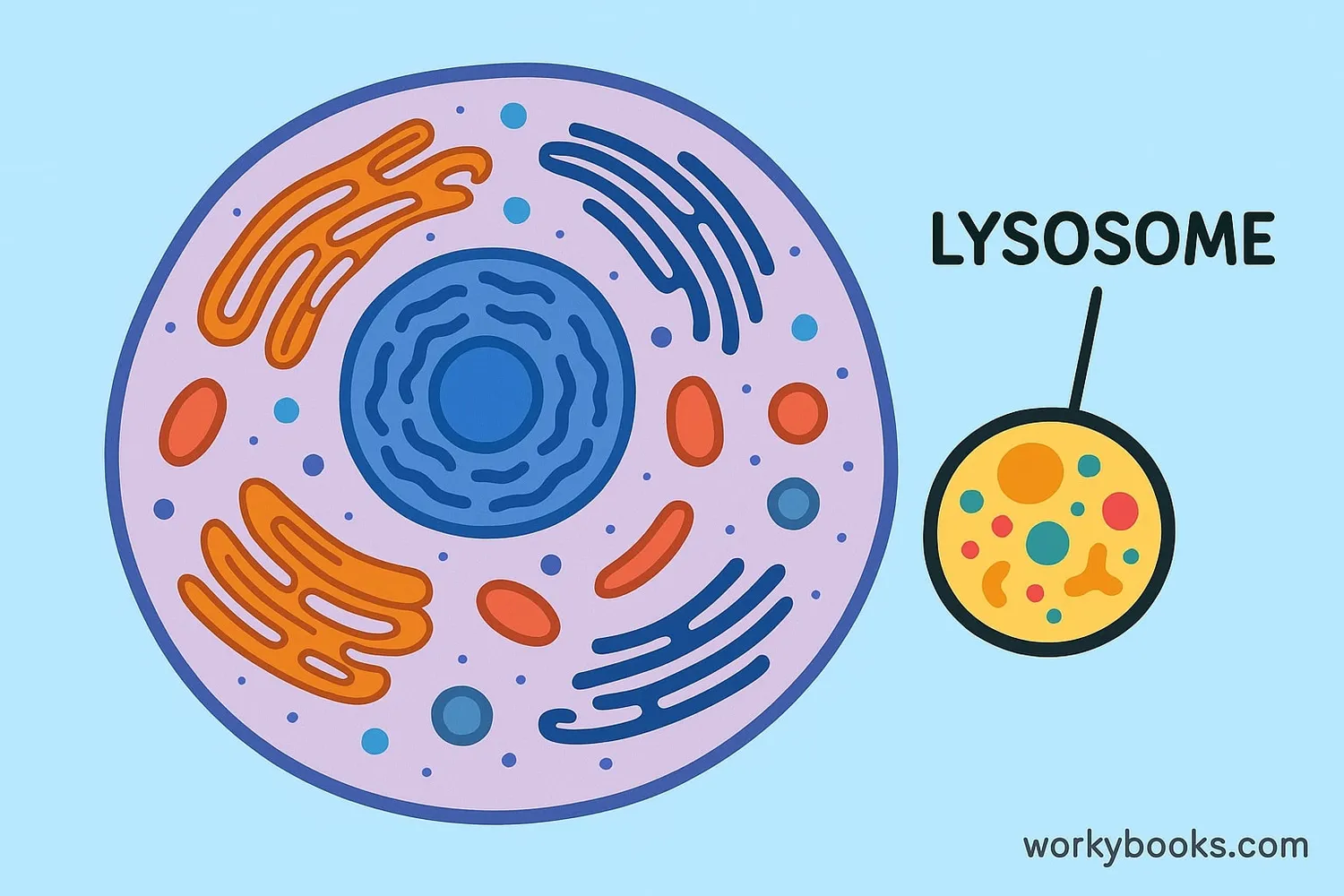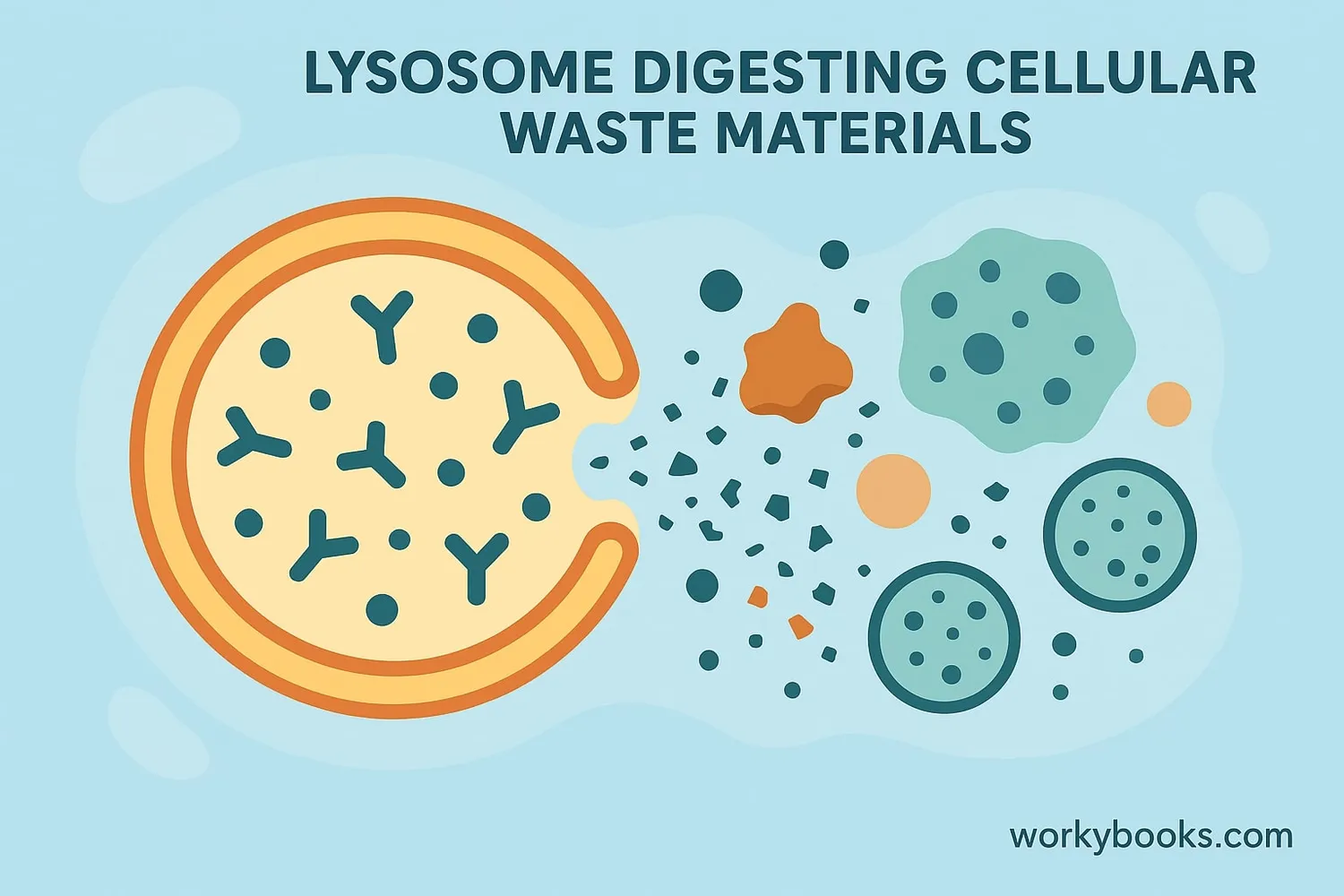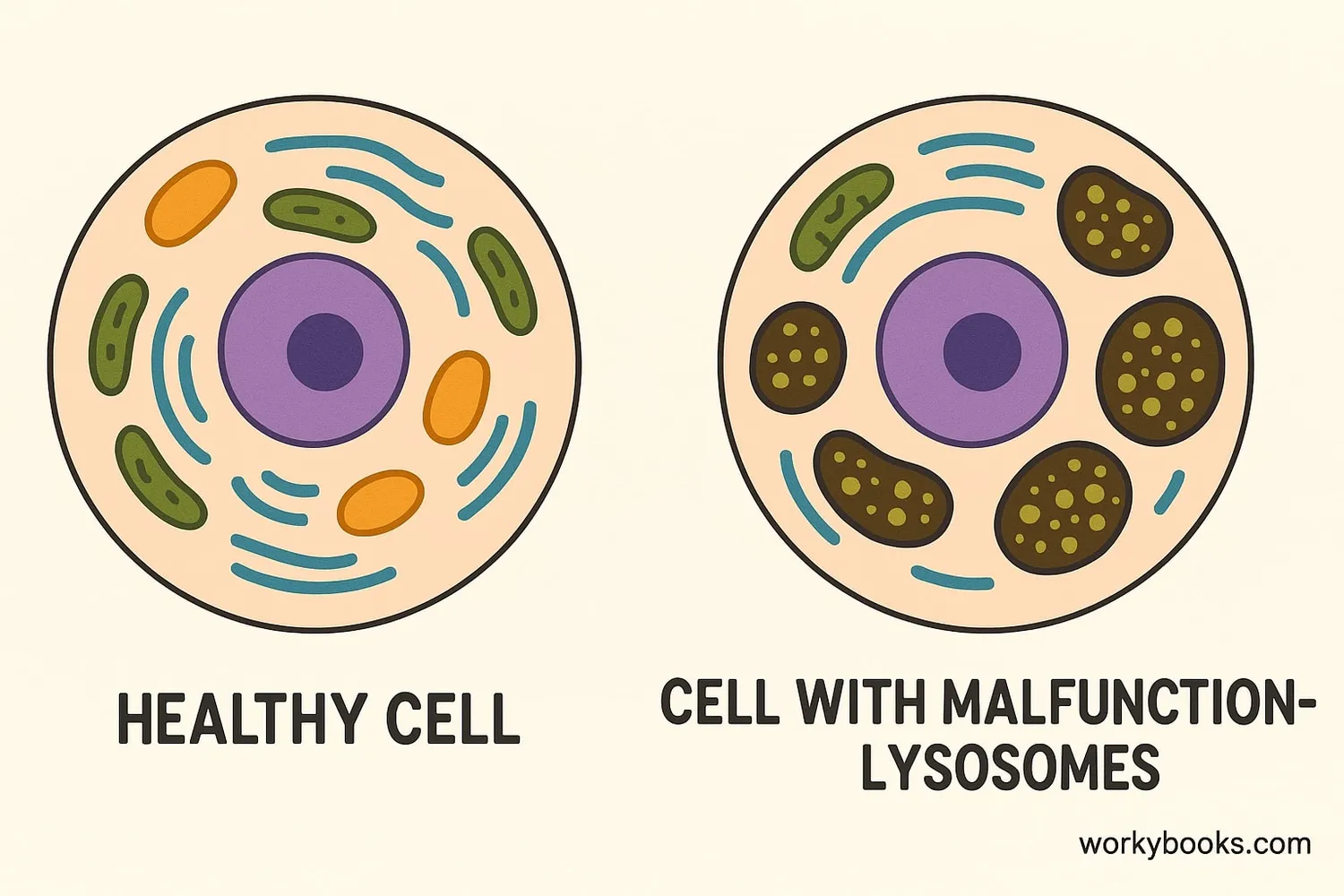Lysosomes - Definition, Examples, Quiz, FAQ, Trivia
Discover how cells break down materials and recycle waste
What are Lysosomes?

Lysosomes are special organelles that act like the recycling centers of our cells! They contain powerful digestive enzymes that break down materials the cell doesn't need anymore.
Think of lysosomes as the cell's cleanup crew. They break down old cell parts, food particles, and even harmful invaders like bacteria. Without lysosomes, our cells would become cluttered with waste materials!
Science Fact!
Lysosomes contain about 50 different enzymes that can break down all kinds of materials!
How Lysosomes Work

Lysosomes work through a fascinating process called intracellular digestion. Here's how they function as the cell's recycling system:
Material Collection
Lysosomes collect waste materials and old cell parts
Enzyme Release
Powerful digestive enzymes are released inside the lysosome
Breakdown
Enzymes break down complex materials into simpler substances
Recycling
Useful components are recycled back to the cell
Waste Removal
Remaining waste is removed from the cell
The lysosome membrane is specially designed to contain the powerful digestive enzymes inside. If these enzymes escaped, they would digest the entire cell! This is why lysosomes are sometimes called "suicide bags" - but don't worry, they're well-contained!
Autophagy Process
Lysosomes perform autophagy ("self-eating") where they recycle old or damaged cell components to keep the cell healthy!
Why Lysosomes are Important

Lysosomes play crucial roles in keeping cells and organisms healthy. Here's why they're so important:
Waste Management
Break down and recycle cellular waste materials
Cell Defense
Destroy harmful bacteria and viruses that enter the cell
Cellular Renewal
Recycle old cell parts to make new components
Without properly functioning lysosomes, cells would:
• Accumulate waste materials
• Be unable to defend against invaders
• Lose the ability to recycle old components
• Eventually become damaged and die
Lysosomes are especially important in cells that deal with lots of materials, like immune cells that destroy pathogens and liver cells that break down toxins.
Lysosome Knowledge Quiz
Test what you've learned about lysosomes with this quiz! Answer all 5 questions to see how much you know.
Frequently Asked Questions
Here are answers to common questions about lysosomes:
Fascinating Lysosome Trivia
Discover some amazing facts about these cellular recyclers:
Discovery
Lysosomes were discovered by Belgian scientist Christian de Duve in 1955. He later won the Nobel Prize for this discovery and his work on cell organization!
Tiny but Mighty
Lysosomes are incredibly small - only 0.1 to 1.2 micrometers in diameter. That's about 100 times smaller than the width of a human hair!
Powerful Enzymes
Lysosomes contain enzymes that work best in acidic environments. The pH inside a lysosome is about 4.5-5.0 - similar to vinegar!
Health Guardians
Lysosomes in immune cells help destroy harmful bacteria. A single white blood cell can contain up to 200 lysosomes to fight infections!





